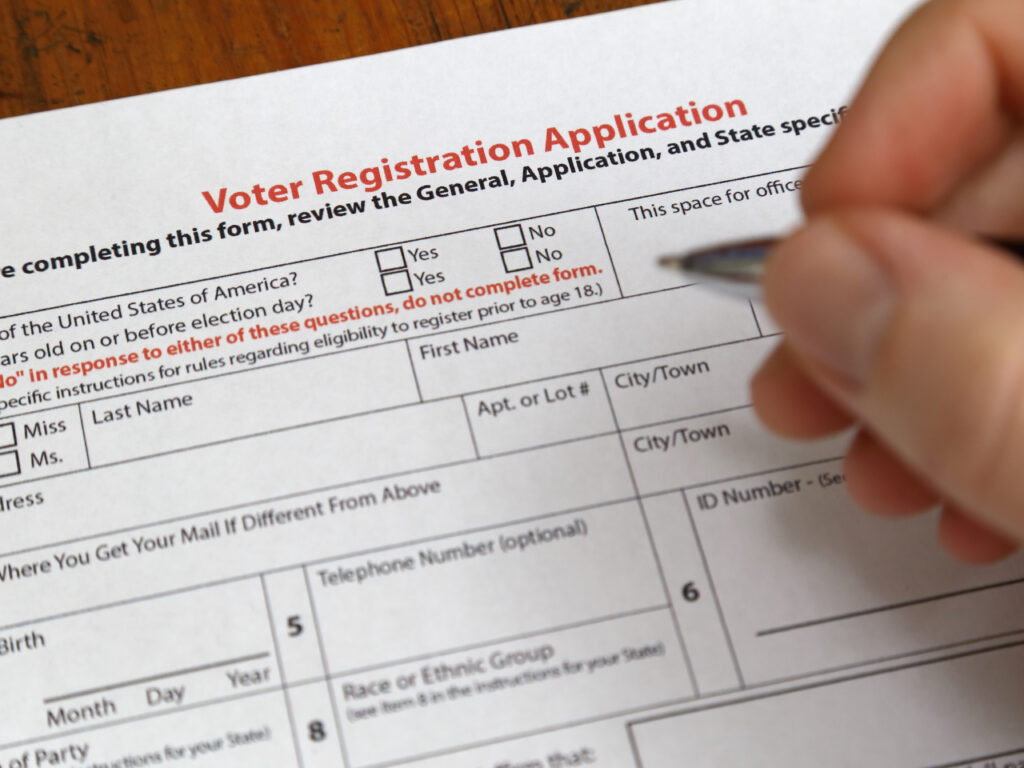DOJ Issues New Guidance on Voter Roll Maintenance Amid Surge of Challenges

The U.S. Department of Justice (DOJ) issued new guidance on Monday for how and when local and state jurisdictions can remove voters from their voter registration rolls.
The guidance comes amid a surge of challenges to state and county voter rolls and maintenance procedures, mostly from right-wing groups attempting to disenfranchise millions of voters right before the November election.
“As we approach Election Day, it is important that states adhere to all aspects of federal law that safeguard the rights of eligible voters to remain on the active voter lists and to vote free from discrimination and intimidation,” Kristen Clarke, assistant attorney general of the DOJ’s Civil Rights Division, said in a statement.
In recent months, right-wing groups have doubled down on efforts to have individuals removed from voter registration rolls across the country. According to Democracy Docket’s litigation tracker, there are at least 24 active lawsuits from these groups either challenging or requesting removal of voters from state voter rolls or attempting to gain access to a state’s rolls in order to challenge maintenance procedures and voters.
Right-wing legal groups like Stephen Miller’s America First Legal and the Public Interest Legal Foundation filed legal challenges to have voters removed in pivotal swing states like Arizona and Michigan.
Meanwhile, a cottage industry of various self-styled election integrity groups emerged in the past few years, which are challenging voter registration rolls across the country. Through lawsuits and requests to local election officials, groups like United Sovereign Americans and the Pigpen Project are pushing counties and states to remove millions of voters ahead of the upcoming election.
The DOJ’s guidance on voting rights specifically highlights provisions of the National Voting Rights Act (NVRA) that outline challenges to voter rolls close to an election and from third parties. The DOJ’s guidance says that list maintenance efforts “must be uniform and nondiscriminatory, and a program to systematically remove ineligible voters must not be done within 90 days of a federal election.”
The DOJ also mentions the 90-day quiet period before elections, meaning that states must complete any procedure to remove the names of ineligible voters from their list of eligible voters no later than 90 days before a federal primary or general election. The issue came up recently in a lawsuit challenging voter rolls filed by two right-wing activists in Fulton County, Georgia. The plaintiffs argue that the NVRA’s 90-day quiet period rule only applies to state-initiated removal of ineligible voters, not challenges brought forth from third-party challenges. But the DOJ’s guidance emphasizes that “this deadline also applies to list maintenance programs based on third-party challenges derived from any large, computerized data matching process.”
“Examples of list maintenance activities that may violate the NVRA include comparing voter files to outdated or inaccurate records or databases, taking action that erroneously affects a particular class of voters (such as newly naturalized citizens), or matching records based solely on first name, last name, and date of birth,” the DOJ stated in their guidance. “The prohibitions of the NVRA extend to any list maintenance activity based on third-party submissions.”